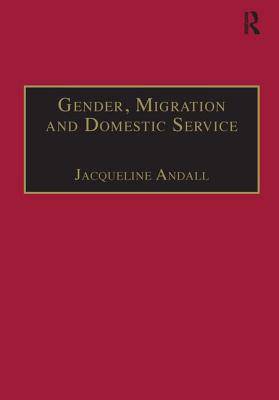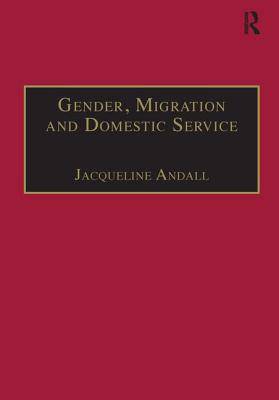
- Afhalen na 1 uur in een winkel met voorraad
- Gratis thuislevering in België vanaf € 30
- Ruim aanbod met 7 miljoen producten
- Afhalen na 1 uur in een winkel met voorraad
- Gratis thuislevering in België vanaf € 30
- Ruim aanbod met 7 miljoen producten
Zoeken
€ 195,95
+ 391 punten
Omschrijving
The book examines the experiences of Black women in Italy from the 1970s to the 1990s. Although Italy is still perceived as a recent immigration country, the book demonstrates how Black women were among the first groups of new migrants to the country. Black women migrating to Italy were employed almost exclusively as live-in domestic workers and detailed attention is paid to the history and political organization of this sector. Unlike much published work in Italian, this book adopts an integrated form of analysis where gender, ethnicity and class are seen to be interconnected constructs. The book also situates Black women within the framework of the national constituency of gender. This approach challenges the ideology surrounding the Italian family and demonstrates that while live-in domestic work created specific forms of social marginality for Black women, it paradoxically allowed Italian women to express their new social identities within and outside the family. The book concludes that Italian women have largely failed in their attempts to transform the division of labour within the home and that the decision to employ other (migrant) women to fulfill household tasks is a trend which sits uneasily within the framework of an inclusive feminist project for women.
Specificaties
Betrokkenen
- Auteur(s):
- Uitgeverij:
Inhoud
- Aantal bladzijden:
- 360
- Taal:
- Engels
- Reeks:
Eigenschappen
- Productcode (EAN):
- 9780754610885
- Verschijningsdatum:
- 3/11/2000
- Uitvoering:
- Hardcover
- Formaat:
- Genaaid
- Afmetingen:
- 152 mm x 219 mm
- Gewicht:
- 739 g

Alleen bij Standaard Boekhandel
+ 391 punten op je klantenkaart van Standaard Boekhandel
Beoordelingen
We publiceren alleen reviews die voldoen aan de voorwaarden voor reviews. Bekijk onze voorwaarden voor reviews.











